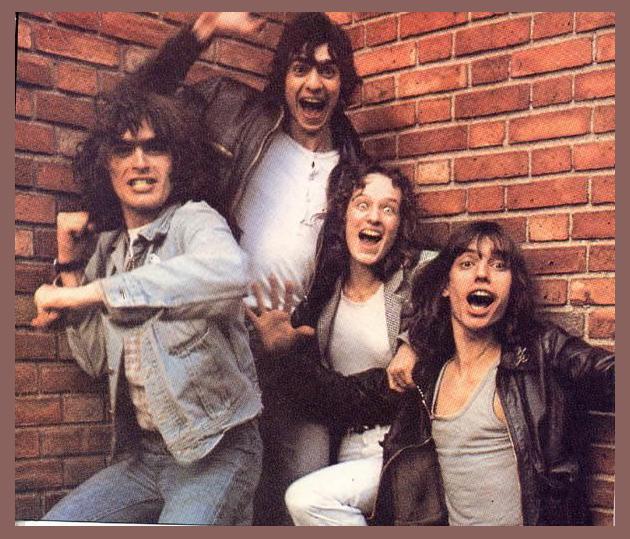 Téléphone
Téléphone
Teléphone: The French Rock Pioneers of the "New Wave" Era
Origins and Early Success:
In the midst of the nascent "new wave" music movement in France, Téléphone emerged from the Parisian suburbs in 1976. The band's raw energy and rebellious lyrics quickly resonated with a youth yearning for change. Fronted by the charismatic Jean-Louis Aubert, the quartet's lineup included Richard Kolinka on guitar, Louis Bertignac on bass, and Corine Marienneau on drums.
Controversy and Challenges:
Téléphone's lyrics, often charged with social and political commentary, stirred up controversy and debate. Their song "La Bombe Humaine" ("The Human Bomb"), a chilling indictment of the nuclear arms race, drew the ire of some critics. Despite facing censorship attempts, the band refused to compromise its artistic integrity, cementing its status as a symbol of rebellion and free expression.
Musical Legacy:
Musically, Téléphone fused elements of rock, punk, and new wave, creating a unique and captivating sound. Their songs, characterized by catchy melodies, driving rhythms, and Aubert's distinctive vocals, became instant classics in France. Albums such as "Argent trop cher" (1979) and "Crache ton venin" (1982) showcased the band's songwriting prowess and experimental spirit.
Discography:
* Argent trop cher (1979)
* Crache ton venin (1982)
* Dure limite (1983)
* Téléphone (1984)
* Un autre monde (1986)
* Cessation de transmission (1988)
Members:
* Jean-Louis Aubert: Vocals, lead guitar
* Richard Kolinka: Rhythm guitar, vocals
* Louis Bertignac: Bass guitar, vocals
* Corine Marienneau: Drums, vocals
Later Years and Legacy:
After disbanding in 1986, Téléphone reunited briefly in 2006 for a successful tour. Today, their music continues to inspire and influence generations of French musicians and fans alike. As one of the most iconic bands of the French rock scene, Téléphone's legacy as pioneers of the "new wave" movement remains undeniable.
Origins and Early Success:
In the midst of the nascent "new wave" music movement in France, Téléphone emerged from the Parisian suburbs in 1976. The band's raw energy and rebellious lyrics quickly resonated with a youth yearning for change. Fronted by the charismatic Jean-Louis Aubert, the quartet's lineup included Richard Kolinka on guitar, Louis Bertignac on bass, and Corine Marienneau on drums.
Controversy and Challenges:
Téléphone's lyrics, often charged with social and political commentary, stirred up controversy and debate. Their song "La Bombe Humaine" ("The Human Bomb"), a chilling indictment of the nuclear arms race, drew the ire of some critics. Despite facing censorship attempts, the band refused to compromise its artistic integrity, cementing its status as a symbol of rebellion and free expression.
Musical Legacy:
Musically, Téléphone fused elements of rock, punk, and new wave, creating a unique and captivating sound. Their songs, characterized by catchy melodies, driving rhythms, and Aubert's distinctive vocals, became instant classics in France. Albums such as "Argent trop cher" (1979) and "Crache ton venin" (1982) showcased the band's songwriting prowess and experimental spirit.
Discography:
* Argent trop cher (1979)
* Crache ton venin (1982)
* Dure limite (1983)
* Téléphone (1984)
* Un autre monde (1986)
* Cessation de transmission (1988)
Members:
* Jean-Louis Aubert: Vocals, lead guitar
* Richard Kolinka: Rhythm guitar, vocals
* Louis Bertignac: Bass guitar, vocals
* Corine Marienneau: Drums, vocals
Later Years and Legacy:
After disbanding in 1986, Téléphone reunited briefly in 2006 for a successful tour. Today, their music continues to inspire and influence generations of French musicians and fans alike. As one of the most iconic bands of the French rock scene, Téléphone's legacy as pioneers of the "new wave" movement remains undeniable.